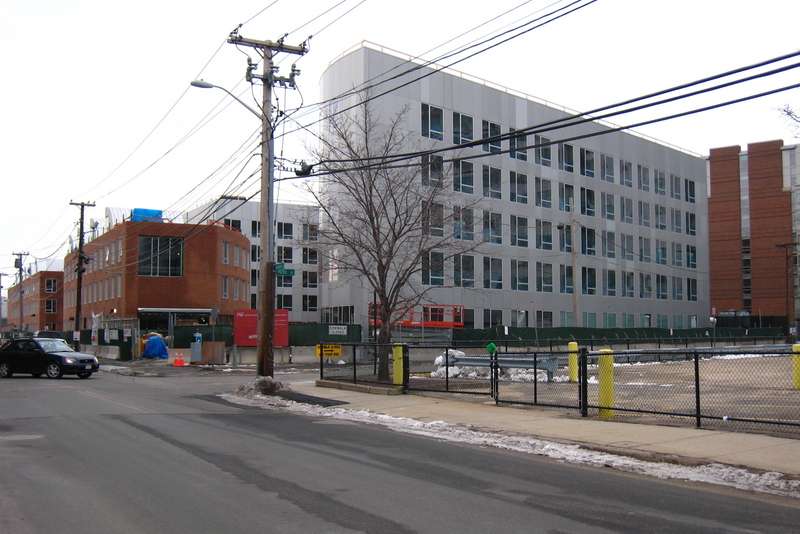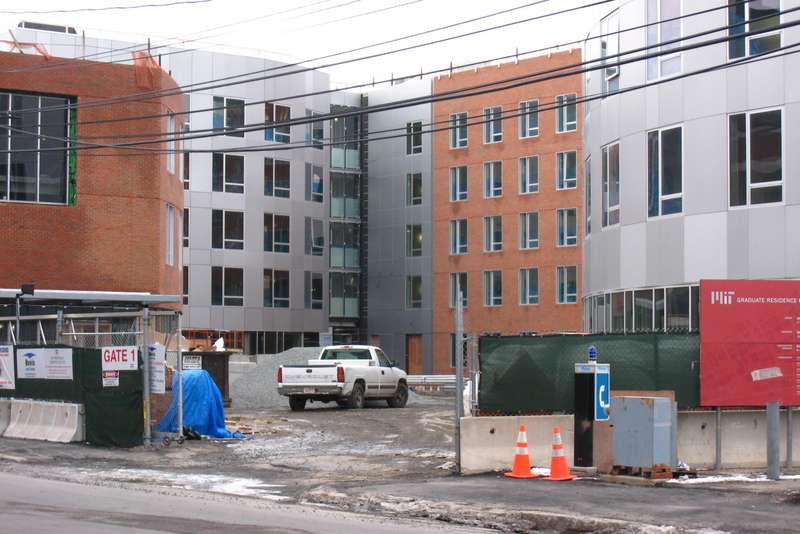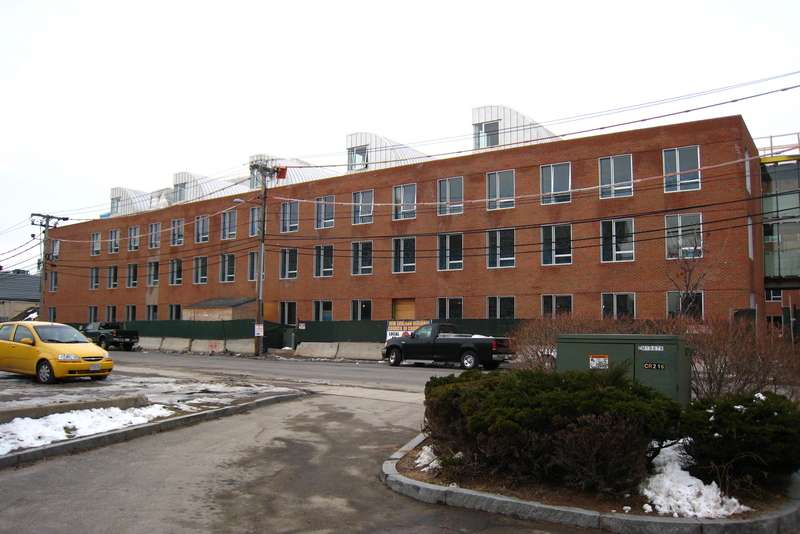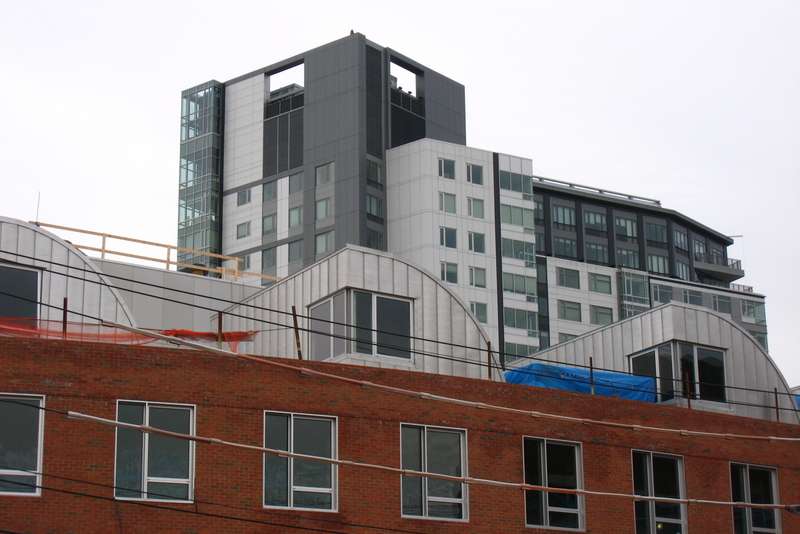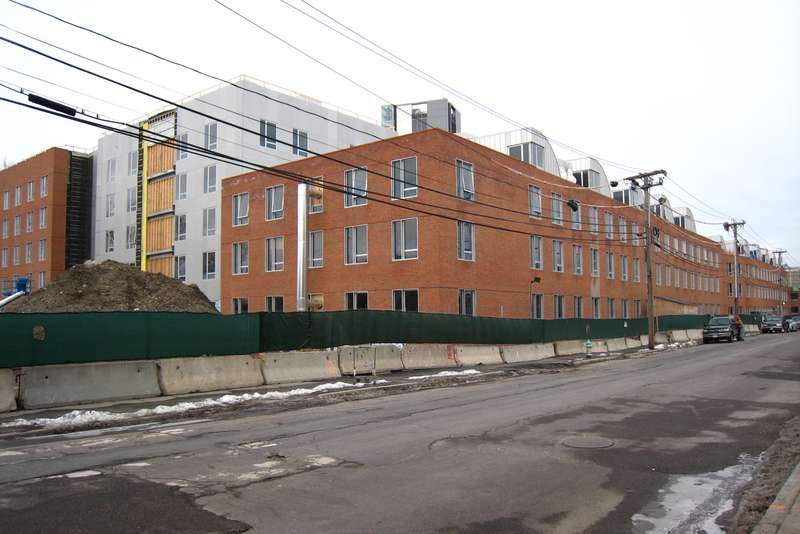Valley entices MIT students
Calif. companies seek tech-savvy business grads
By Robert Weisman, Globe Staff | January 14, 2008
PALO ALTO, Calif. - The annual mating ritual between elite business schools and the talent-hungry technology industry this year lured a record 115 master of business administration candidates from MIT's Sloan School of Management in Cambridge to the hillside campus of VMware Inc., one of Silicon Valley's hottest companies.
Diane Greene, VMware chief executive, herself a Massachusetts Institute of Technology graduate, greeted the visitors milling over tofu kabobs and Oregon red wine. "We would love to have you guys talk to us about joining the company," Greene said. "We're a meritocracy. If you're talented, you'll move up very quickly."
The next morning, the group toured Google Inc.'s quirky Googleplex in Mountain View, where eight newly minted MBAs from Sloan's class of 2007 are working. After marveling at tent-like meeting rooms called "yurts," and "nap pods" where Googlers can snooze in noise-muffling chambers, the students were assured by Claire Callaghan, a Google recruiting coordinator, "There should be a microkitchen no more than 100 feet away from every workstation at Google."
Help wanted. That was the message to the Silicon Valley Tech Trek, an expedition by Sloan's graduate business students searching for jobs or internships at the nation's most dynamic companies. But their January hunt took place 3,000 miles away from Sloan's campus on the Charles River. The students were seeking their fortune not in Kendall Square or the Route 128 beltway, which have long staked their claims as American high-tech hubs, but in California's Bay Area.
Boston-area industry figures, while proud of their region's own technology heritage, are well aware of the appeal of the Valley.
"Yes, I wish we could have more anchor companies," said Joyce Plotkin, president of the Massachusetts Technology Leadership Council, a trade group for software and other tech businesses. "I think our culture does not value entrepreneurs the way the West Coast does. Historically, most of our companies are in the business-to-business market, and that's a tougher sell. To someone who's 21 years old, it looks more exciting to work at consumer- oriented companies."
Northern California is home to more than 9,700 MIT alums, the largest concentration outside Boston, and the number has been rising every year. Last year, another 47 new MBAs - fully 16 percent of Sloan's graduating class of 2007 - took up residence here, mostly in Silicon Valley and San Francisco. This year's New Year trek to the Bay Area, the largest ever, drew more than twice the number of Sloan students that took part in a similar trek in the Boston area last week.
The reason, say participants, is that California continues to sprout the kind of game-changing technology companies rare in Boston these days. Wide-eyed Sloan trekkers last week dropped by high-tech giants such as Google, Apple Inc., Yahoo Inc., and eBay Inc., companies that have captivated consumers around the world.
They also called on companies transforming business computing, like VMware, whose "virtualization" software lets customers save money by running multiple operating systems on computer servers, and Salesforce.com, which pioneered the "software-as-service" model that enables businesses to purchase software cheaply and piecemeal over the Internet rather than leasing it in bulk from costly vendors.
Even those students who want to launch companies or join startups, part of a smaller cohort on the Silicon Valley trek from Sloan's Entrepreneurship & Innovation program, couldn't pass up the chance to check out the Valley's iconic technology companies. "Half the group is interested in working here, and the other half just wants to see it," said Josh Miller, a first-year Sloan student on the Google tour.
All the technology companies here talked of expansion, even as the US economy teeters on the brink of a recession. "Everybody's hiring," said Harpreet Singh, an MBA candidate. "The companies are pulling out all the stops for us." Based on discussions with the Valley companies they visited, Sloan officials expect more than a dozen of their 2008 graduates will be hired at VMware, perhaps six to eight at Salesforce.com, and several more at Google and Yahoo.
Others will join some of the hundreds of venture-backed startups dotting the Valley, many of them still operating in "stealth" mode before their formal launch. They're housed in spots like the PlugandPlay Tech Center, a Sunnyvale incubator for about 115 technology startups, where a flag bearing the MIT logo hung above a row of cubicles.
"They want our guys," said Kenneth P. Morse, managing director of the MIT Entrepreneurship Center, noting Sloan's focus on preparing students to run high-tech firms. "We produce the kinds of people they need in the rough-and-tumble crucible of Silicon Valley."
Sloan students wearing dark suits and ties at most stops, on instructions from Morse who "didn't want to convey a sense of entitlement," paraded through Valley companies where executives wore faded jeans and sweatshirts. Sloan alum Jason Garoutte, a vice president of field operations at Salesforce.com, boasted of his company's "Aloha culture," complete with Hawaiian shirts and "Mahalo bonuses," to Sloan students packed into a Salesforce conference room in San Francisco's financial district. Citing the loyalty of his fellow employees, Garoutte admitted, "We drank the Kool-Aid."
Trekkers said they viewed the Bay Area as a mecca for ambitious techies, whether their background is engineering, finance, product development, or marketing. "It's vibrant," said Kevin Knight, another Sloan first-year student. "Even if you try and fail here, there'll be a second try. The culture is accepting of that. There are very few economic ecosystems in the US where that's the case."
Mira Wilczek, a Sloan student and a semifinalist in MIT's $100K business plan competition who created an online video player, said she plans to start her own Internet video company. While she'd like to launch it in Boston, she is drawn to the Valley, partly because of its proximity to entertainment companies that could supply videos for her startup.
Others were attracted to what they described as the Valley's culture of pure capitalism. "The biggest thing you notice here is the entrepreneurial energy is off the charts," said Sloan student Brian Dong. Not everyone was prepared to go West after graduating, however. "I'd love to move out here if I was single, but I have a wife, a house, a kid on the way," said Chester Liu, a Sloan student who grew up in Winchester and plans to work in Internet and mobile technology. "I think Silicon Valley has almost a mythical image of how exciting it is, and I wanted to come out and experience it myself. Because my career is committed to Boston, I'd like to bring some of this energy home."
Sam Israelit, a partner at consulting firm Bain & Co. and a 1993 graduate of the Sloan School, last year relocated from Bain's office in Boston to its Palo Alto office, which hosted Sloan trekkers this month. His message to his visitors: "We'd like to have more Sloan alums on the West Coast. I don't have 3 feet of snow in my yard."



